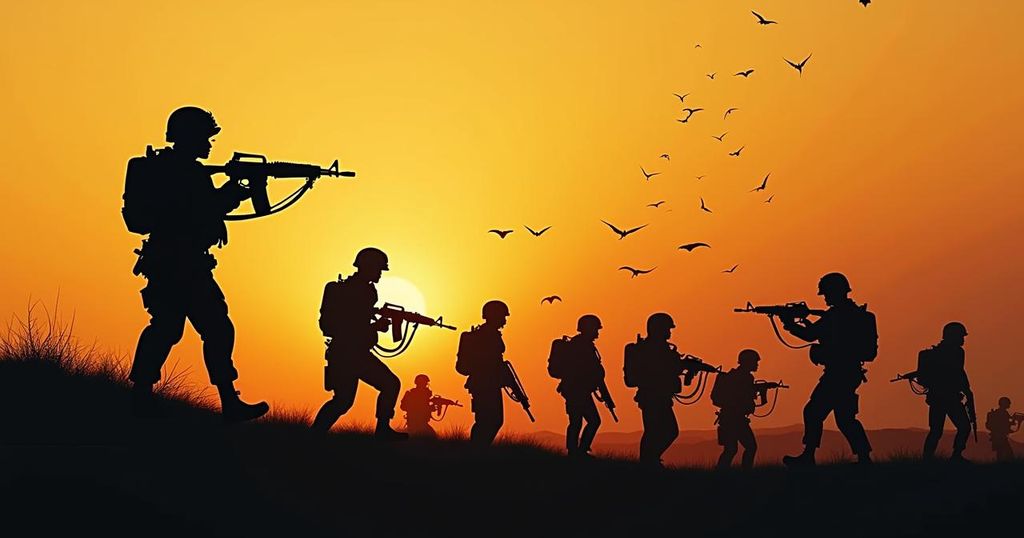Hezbollah launched an attack on Israeli forces in southern Lebanon amidst escalated Israeli actions in Gaza, culminating in Iranian missile strikes against Israel. Jordan asserted its position of neutrality, while Israel prepared for retaliatory strikes. International reactions have emphasized the need for restraint, with significant concerns regarding regional stability.
Hezbollah has engaged in armed conflict with Israeli forces in southern Lebanon, coinciding with an increase in Israeli military operations against Gaza. Reports indicate that Israeli helicopters conducted evacuations of injured soldiers following a recent Hezbollah attack. According to Andreas Krieg, a senior lecturer at King’s College London, any Israeli military action against Iran is unlikely to effectively damage its nuclear capabilities, which are securely located underground. Krieg emphasized the need for a more robust Israeli response to Iran’s recent missile assaults, stating that military strikes might involve entering Iranian airspace. He cautioned against attacks on non-military targets, suggesting such actions would not yield significant outcomes and would reflect an overestimation of Israel’s military potential. Furthermore, Italian Prime Minister Giorgia Meloni announced she would convene a call with G7 leaders to address the escalating situation, expressing considerable concern over the Iranian missile strikes and rising tensions in Lebanon. The Jordanian government has declared it will prevent its territory from becoming a battleground, with spokesperson Mohammad Momani assuring that national security is of primary importance. Following the missile strikes from Iran, which were claimed to retaliate against actions in Gaza and Lebanon, Jordan restricted its airspace and reported minor injuries due to missile debris. The Lebanese Army reported an incursion by Israeli forces into Lebanese territory before they retreated. In addition, India expressed deep concern regarding the growing conflict and urged all parties to practice restraint and prefer diplomatic avenues for resolution. Israeli officials have conferred on retaliatory measures after Iran targeted military sites in Israel. Israeli Foreign Minister Israel Katz condemned UN Secretary-General Antonio Guterres for failing to explicitly denounce the Iranian attack, asserting that this omission disqualifies him from visiting Israel. Lastly, Hezbollah official Mohammad Afif remarked that the recent clashes represent only the beginning of their engagement, vowing that the group possesses sufficient resources to counter Israeli forces vigorously.
The ongoing conflict between Hezbollah and Israel is part of a larger regional struggle involving Iran and its influence over militant groups in the area, including the response to tensions surrounding Gaza. As Iran has increased its military support to Hezbollah and other factions, tensions have risen significantly, leading to cross-border assaults and retaliation. The attacks from both sides are exacerbated by the backdrop of the long-standing animosity between Israel and militant groups, as well as the complex geopolitical landscape involving neighboring countries like Jordan and the international community’s response.
The current escalation of hostilities between Hezbollah and Israel underscores the fragile security situation in the region, influenced heavily by Iranian provocations and the responses from Israel and its allies. The involvement of Jordan and calls for international dialogue indicate the potential for broader regional implications if the situation continues to deteriorate. The looming threat of further military actions raises concerns about civilian safety and stability in the already volatile Middle East.
Original Source: www.aljazeera.com







